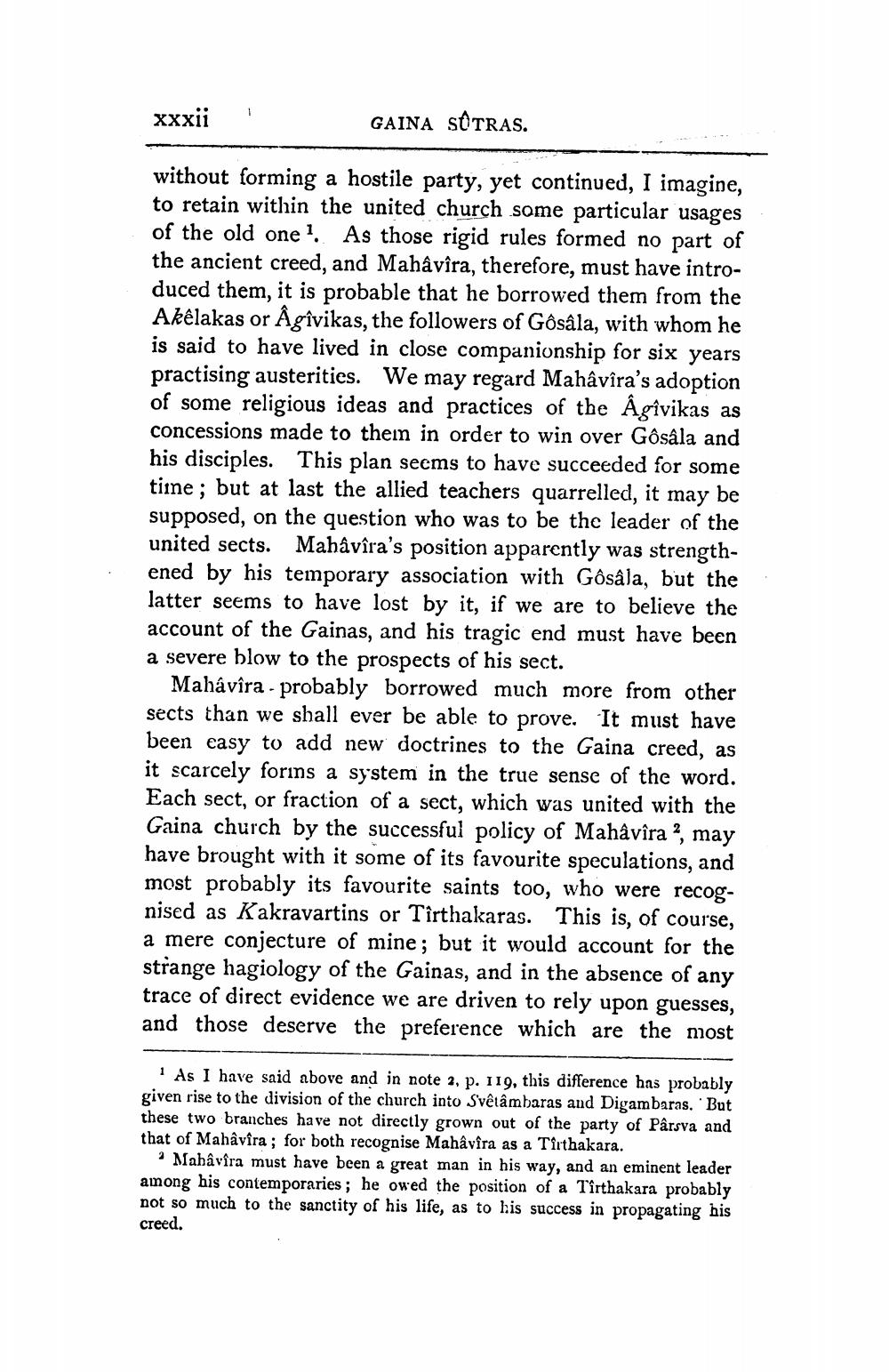________________
xxxii
GAINA SUTRAS.
without forming a hostile party, yet continued, I imagine, to retain within the united church some particular usages of the old one 1. As those rigid rules formed no part of the ancient creed, and Mahâvîra, therefore, must have introduced them, it is probable that he borrowed them from the Akêlakas or Âgîvikas, the followers of Gôsâla, with whom he is said to have lived in close companionship for six years practising austerities. We may regard Mahâvîra's adoption of some religious ideas and practices of the Agivikas as
concessions made to them in order to win over Gôsâla and his disciples. This plan seems to have succeeded for some time; but at last the allied teachers quarrelled, it may be supposed, on the question who was to be the leader of the united sects. Mahâvîra's position apparently was strengthened by his temporary association with Gôsâla, but the latter seems to have lost by it, if we are to believe the account of the Gainas, and his tragic end must have been a severe blow to the prospects of his sect.
Mahávîra - probably borrowed much more from other sects than we shall ever be able to prove. It must have been easy to add new doctrines to the Gaina creed, as it scarcely forins a system in the true sense of the word. Each sect, or fraction of a sect, which was united with the Gaina church by the successful policy of Mahâvîra 2, may have brought with it some of its favourite speculations, and most probably its favourite saints too, who were recognised as Kakravartins or Tirthakaras. This is, of course, a mere conjecture of mine; but it would account for the strange hagiology of the Gainas, and in the absence of any trace of direct evidence we are driven to rely upon guesses, and those deserve the preference which are the most
1 As I have said above and in note 2, p. 119, this difference has probably given rise to the division of the church into Svêtâmbaras and Digambaras. But these two branches have not directly grown out of the party of Pârsva and that of Mahâvîra; for both recognise Mahâvîra as a Tirthakara.
Mahâvîra must have been a great man in his way, and an eminent leader among his contemporaries; he owed the position of a Tîrthakara probably not so much to the sanctity of his life, as to his success in propagating his
creed.




